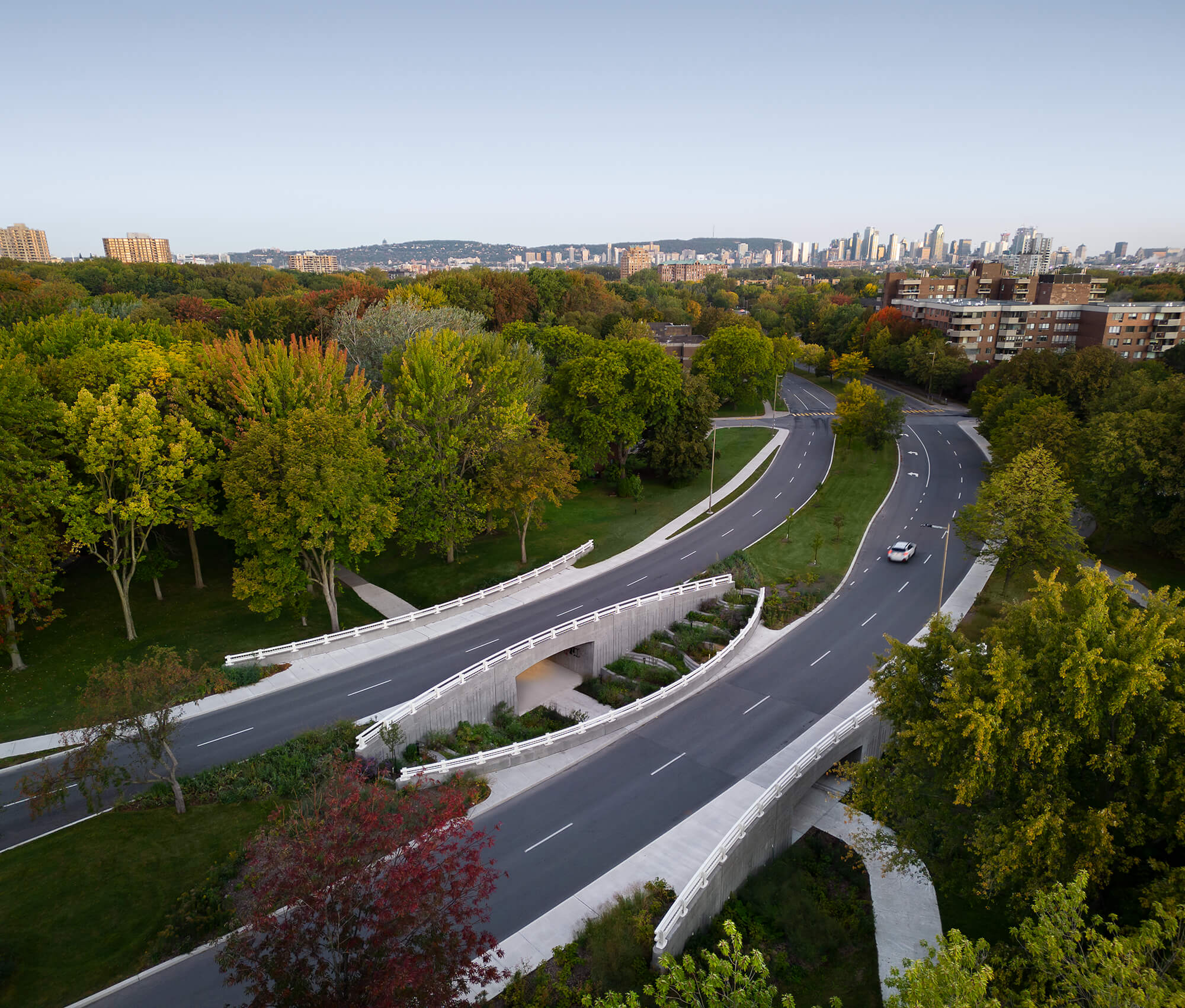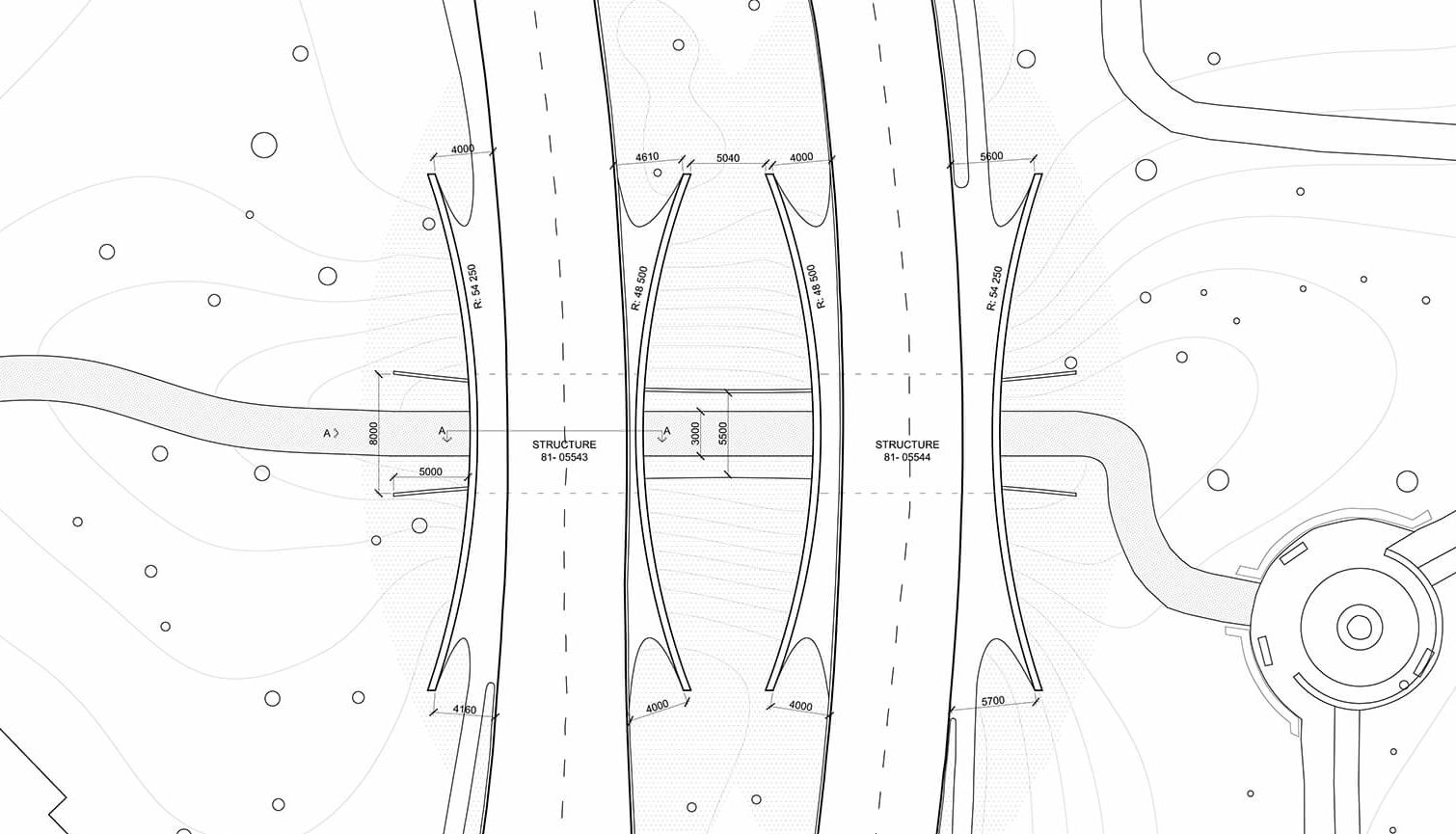Darwin Bridges
Located on Nuns’ Island in Montréal, the twin Darwin bridges open new architectural perspectives through their use of local sustainable materials. They are also aligned with Ville de Montréal’s vision to accelerate the city’s ecological transition and establish itself as a North American model of sustainable mobility.
By replacing the old structures that had reached the end of their respective lifespans, the Darwin bridges now enable pedestrians and cyclists to safely cross the boulevard’s four traffic lanes and enter Parc de West-Vancouver. Our design’s curved formwork and rounded architectural patterns fit seamlessly into an iconic site near the Saint Lawrence River and Corot Building, designed by Ludwig Mies van der Rohe in 1967.
Architects
Provencher_Roy
Civil Engineering
SNC-Lavalin
Photography
Stéphane Brügger
Contractor
Tisseur Inc.
Structure
SNC-Lavalin (durabilité du béton)
Landscape
Provencher_Roy
Lighting
SNC-Lavalin
Other Collaborators
Ville de Montréal / Béton Hébert inc. / Lafarge Canada inc. / Université de Sherbrooke / Les Services EXP inc.
Certification
Envision Certification candidate
Country
Canada
City
Montréal / Île des Soeurs
Client
Ville de Montréal
Surface Area
37 m
Year
2021
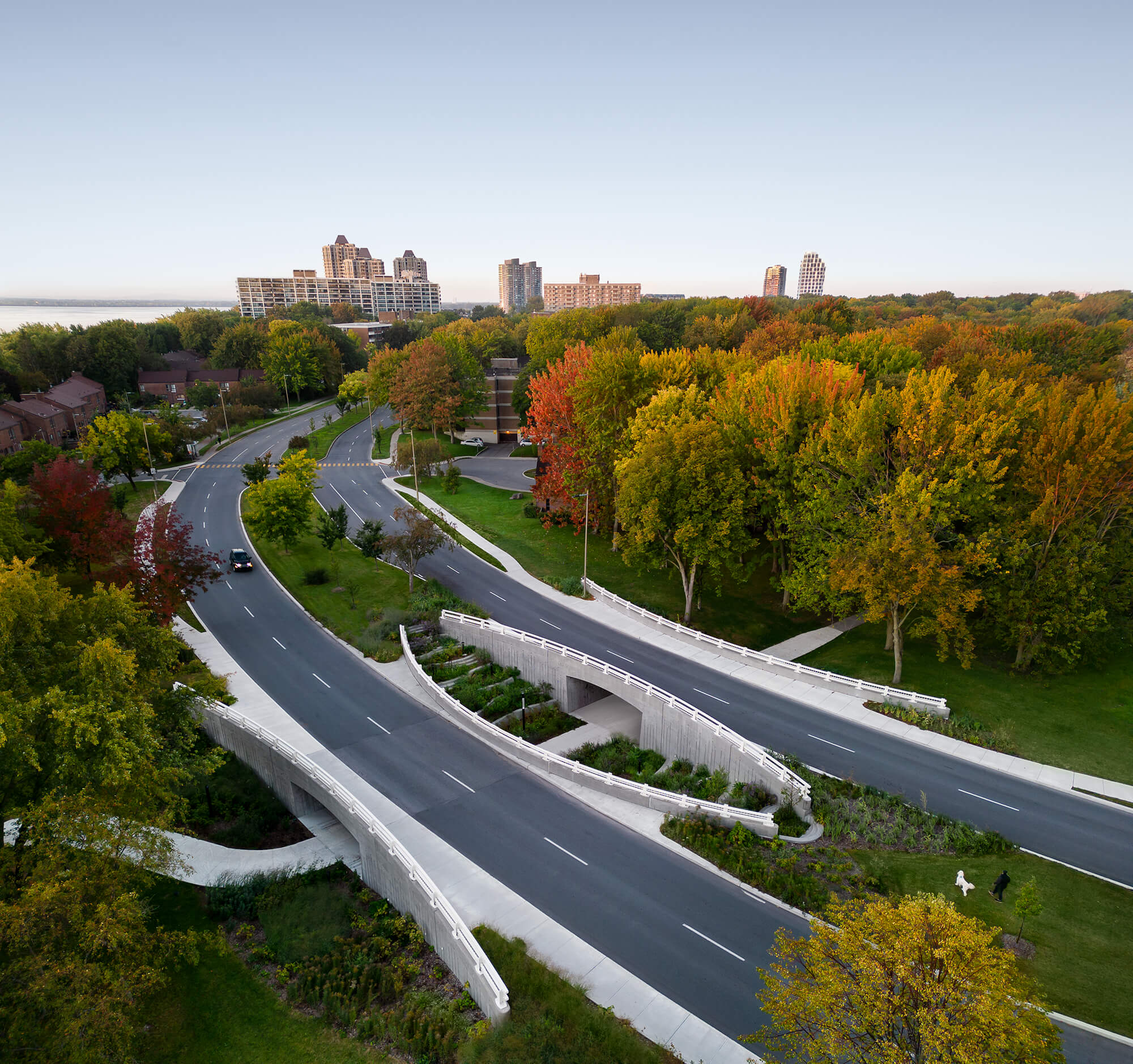
Sensitive urban integration
Given the architectural richness of the area, an effort has been made to ensure that the Darwin bridges blend harmoniously into the environment. Shapes, proportions, materials, and surface treatments were chosen with the objective of designing elegant, sober, and uncluttered structures. A curved parapet in the shape of an arch creates a safe space more than 4 metres from the traffic lanes, resulting in a unique elegant movement effect spanning the 37-metre length of the infrastructure.
For decades, almost all transportation infrastructures were built for the sole use of the automobile. However, the growing number of pedestrians and cyclists today requires that we rethink our approach.
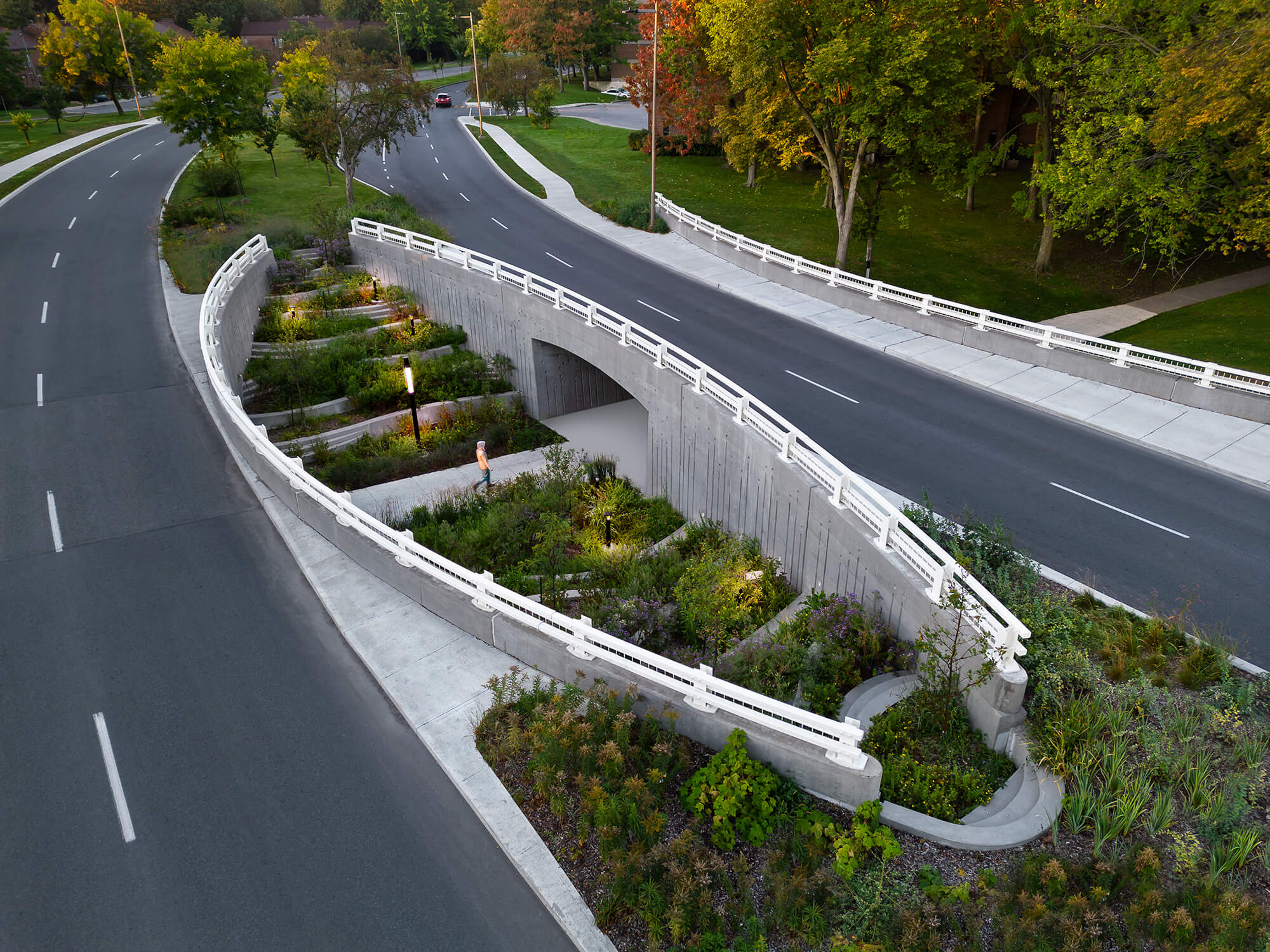
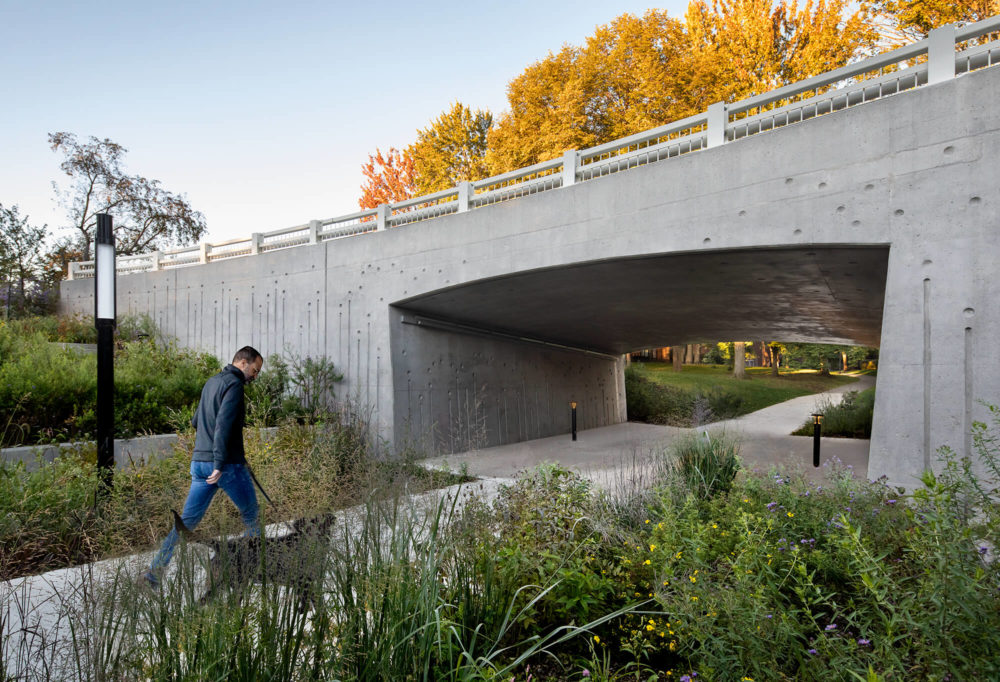
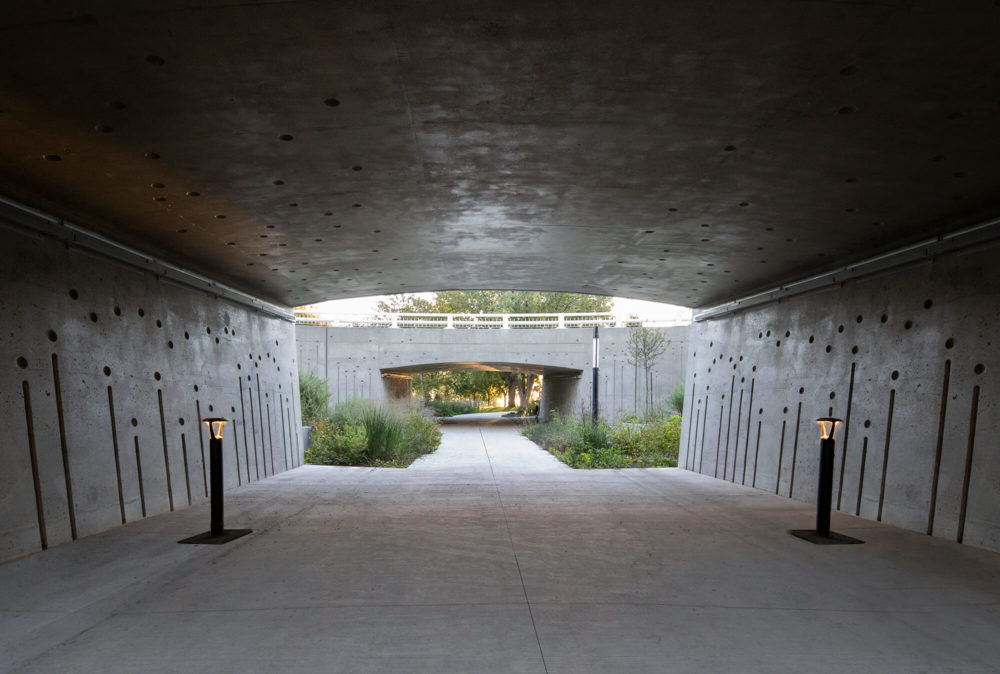
Sustainability and innovation
The reconstruction of the Darwin bridges uses locally sourced recycled glass, becoming the first in the world to use glass powder concrete, a new material that incorporates fine ground recycled glass. This type of concrete, also referred to as ground glass pozzolan (GGP), replaces 10% of the ternary binder required with recycled glass powder. By using GGP, we saved approximately 40,000 kg of concrete and used a total of nearly 40,000 kg of recycled glass – the equivalent of 70,000 wine bottles. This 100% Québec-based, patented innovation results from 17 years of research carried out by the University of Sherbrooke and Ville de Montréal.
Composed of GGP, the Darwin bridges’ lifespans will extend over 125 years, compared to 75 years for a conventional concrete structure. The bridges present new sustainable materiality, making a world premiere in urban development.

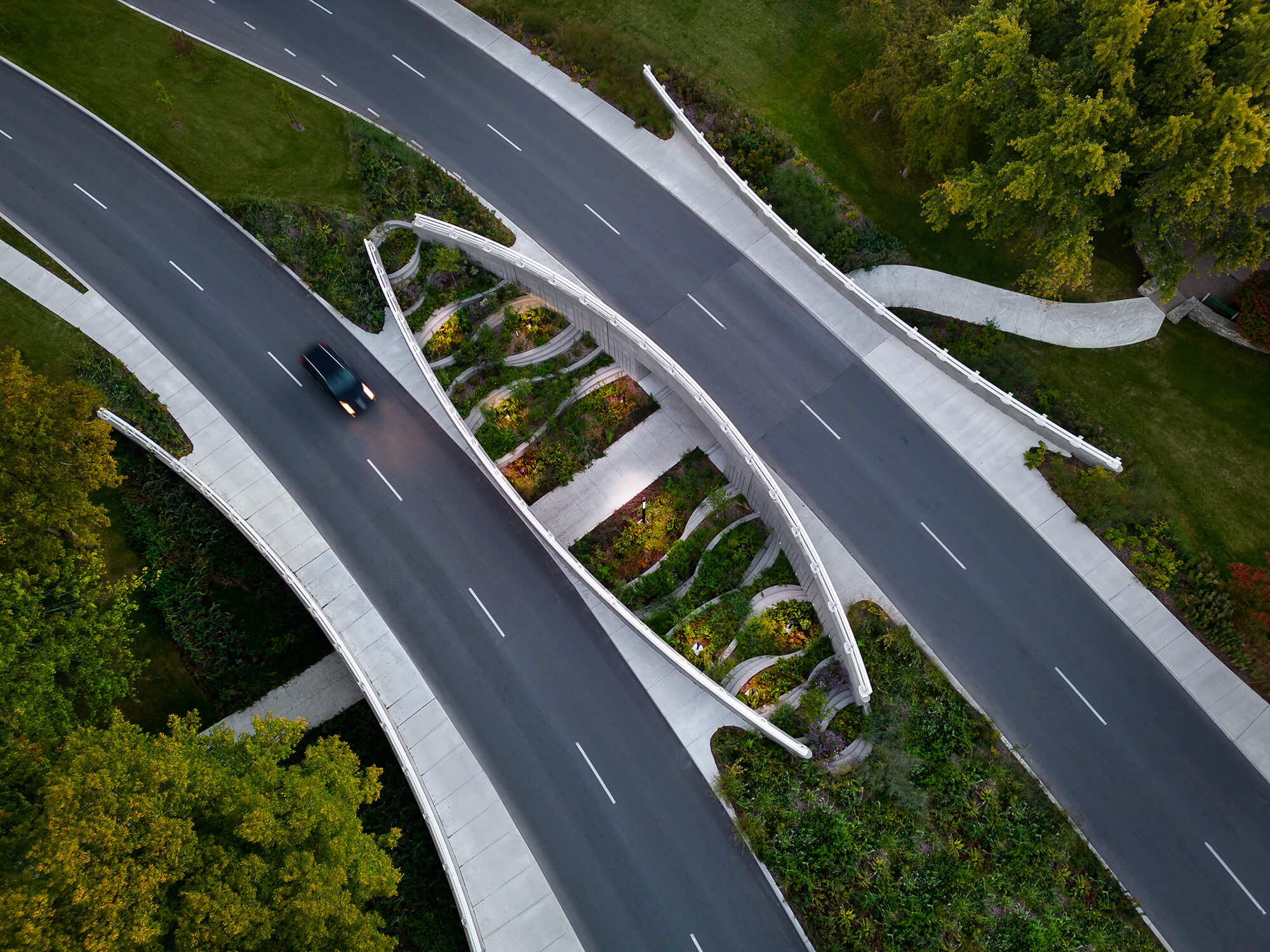
A secret garden, in complete safety
Between the two lanes of the bridges, the central strip opens and deepens, drawing in two arches from the road, which then slope down towards the cycling path. Complex geometric precast concrete retaining walls are installed between the bridges to create vegetation-lined levels. Extensive landscaping of trees, shrubs, and indigenous plants enliven the bridge perimeters and promote biodiversity. In keeping with the naturalistic approach of the structures, the landscaping around the bridges creates a soft, inviting, and colourful atmosphere. The landscaping of the site was also designed to serve as a wetland area and rain garden for the harvesting of runoff water.
The pathway is illuminated at night with long-lasting LED lighting, to prevent pedestrians and cyclists from experiencing a tunnel sensation.
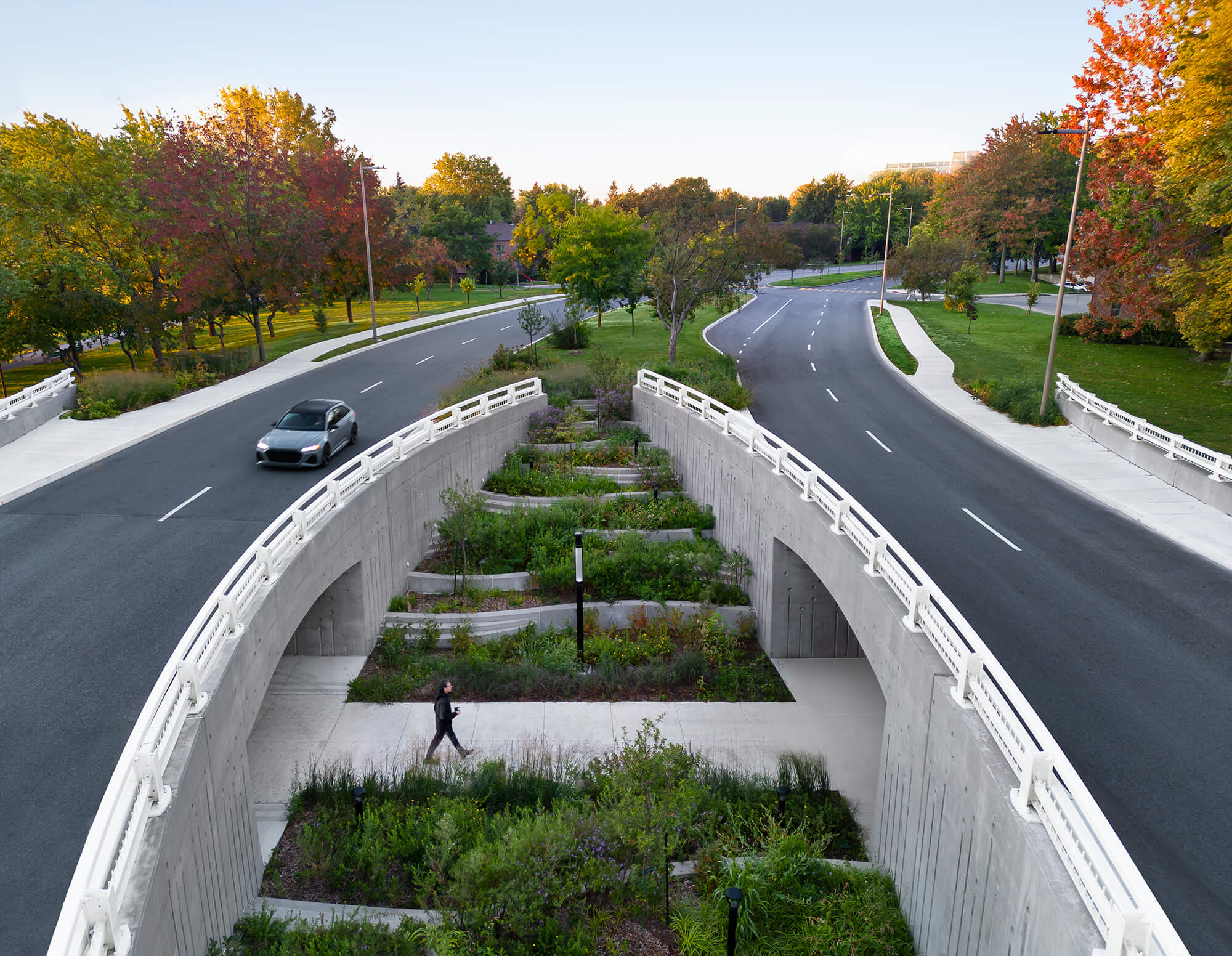
Before
After
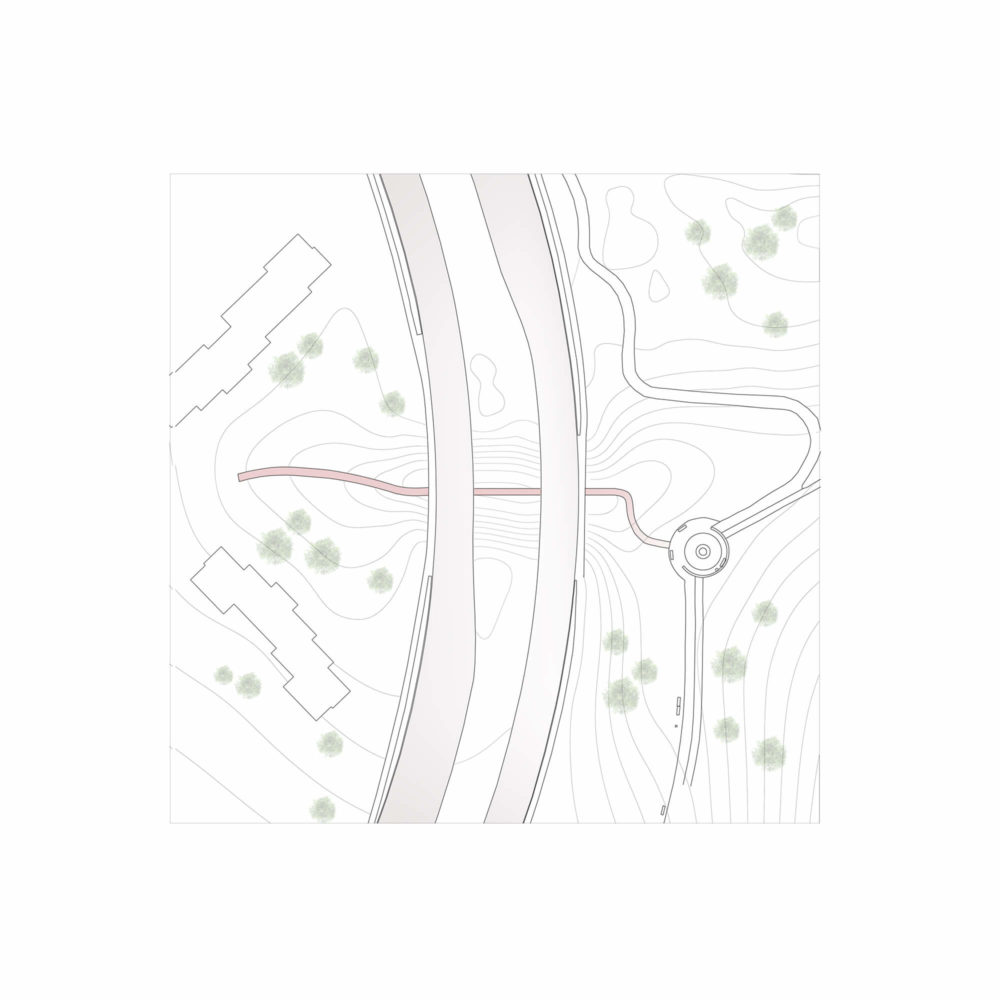
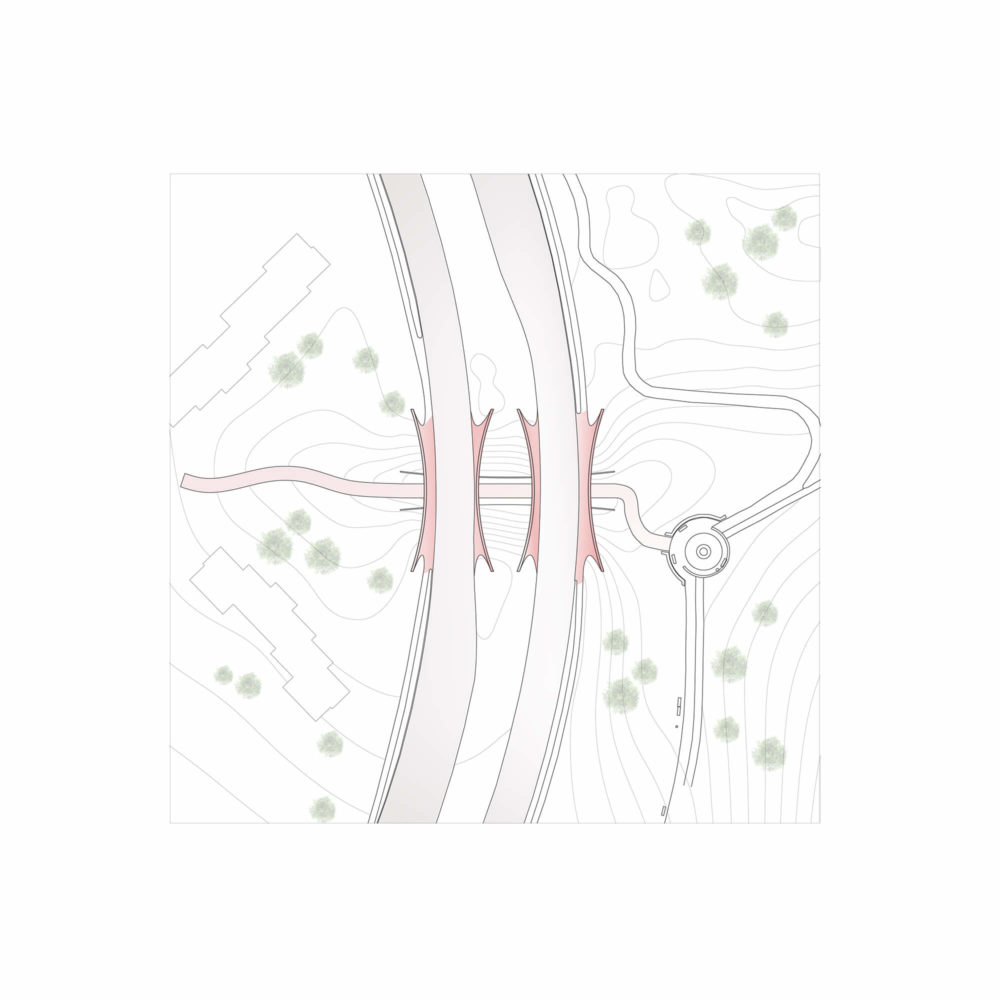
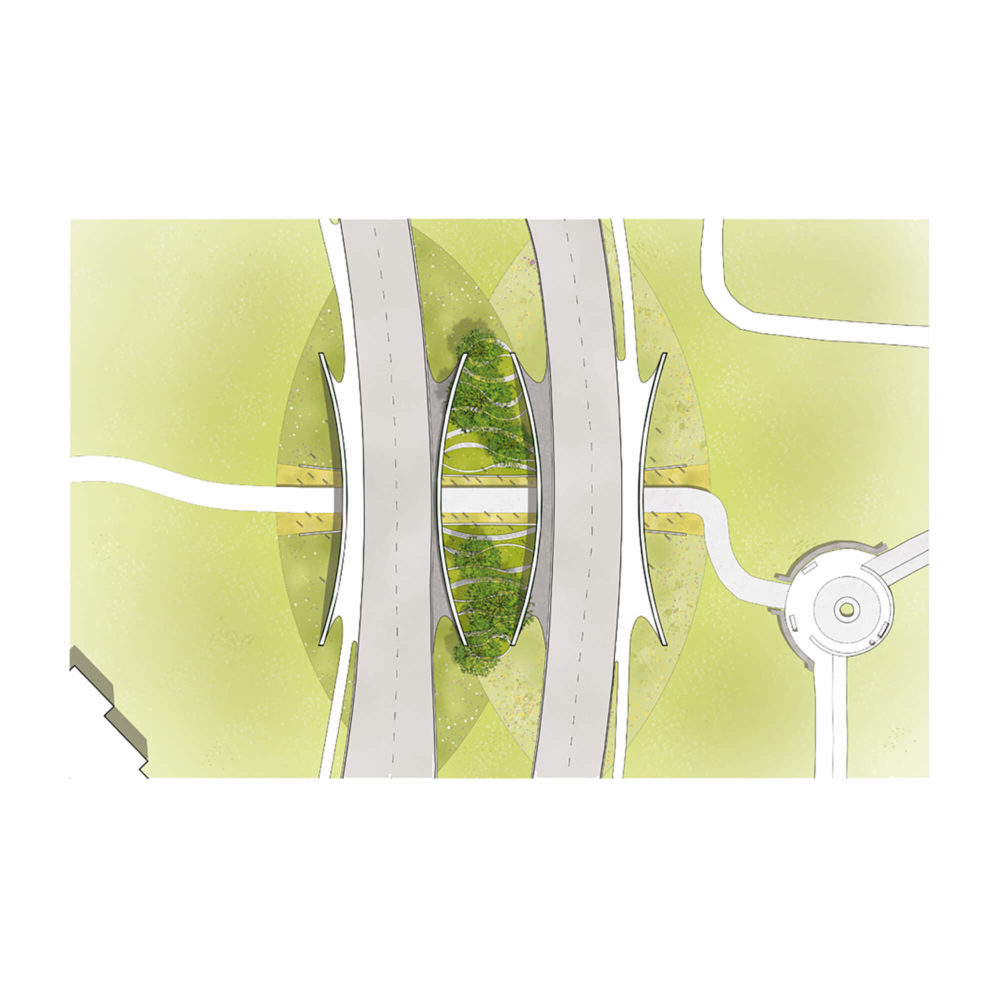
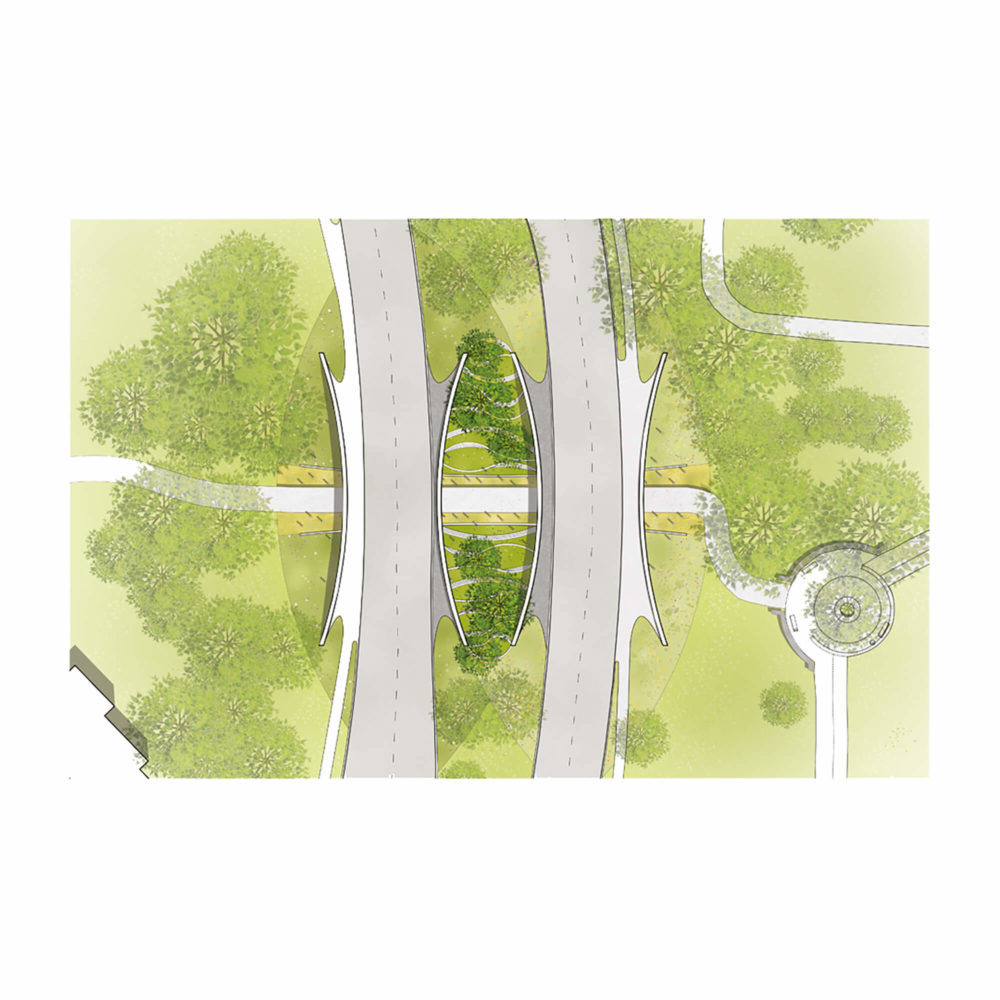
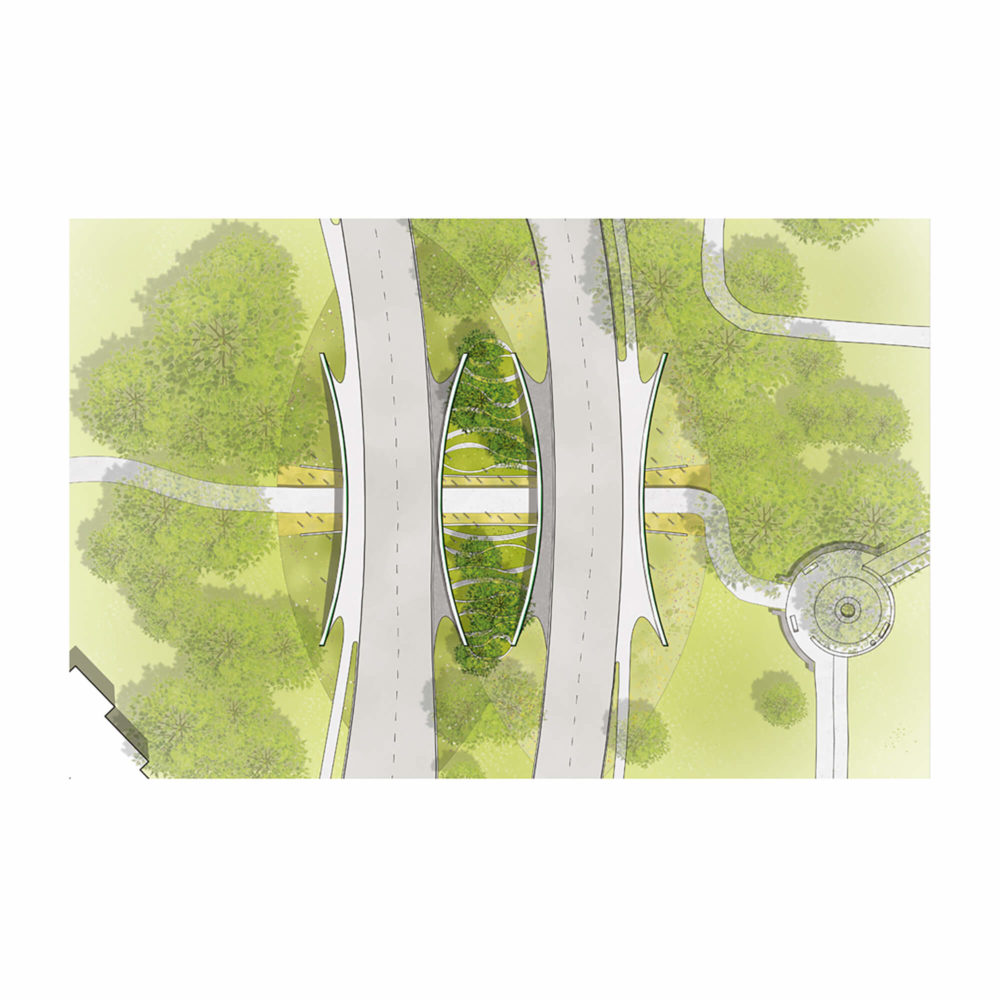
Building upon an urban heritage
The Darwin bridges breathe new life into the innovative experience of urban life concept developed in the 1960s, while improving its language, physical, and visual presence within a contemporary framework. With this project, Provencher_Roy thereby illustrates its ability to establish a continuum between an urban architectural language and the emerging generation.
